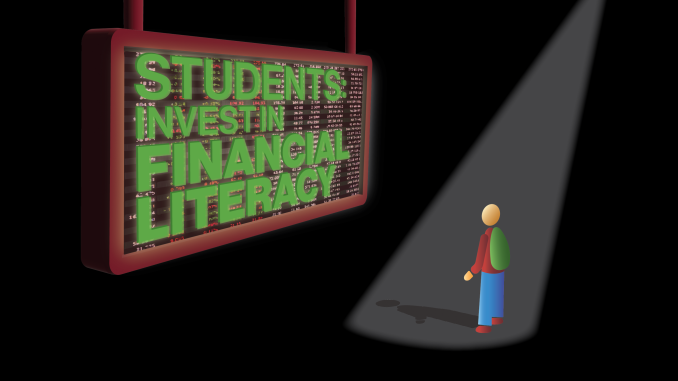
April is not only National Financial Literacy Month, but it marks the last full month of college for many students. In May, Temple University students will graduate, begin new jobs and many will start managing their finances independently.
Financial activities, like applying for loans, paying off student loans and utilizing a 401(k), are typical aspects of post-grad life, yet some students haven’t learned financial literacy during their time at Temple.
Financial literacy helps individuals create a budget, save for emergencies and manage debt. Students can improve their financial well-being with these skills and avoid future financial stress.
College students often rely on loans and credit cards to pay for tuition fees and other expenses. However, without proper financial knowledge, students may find themselves in debt, which can negatively affect their future financial opportunities. As many students will enter the workforce after graduation, they must be financially literate by learning how to budget and manage their credit.
“Financial literacy is when you take information that will improve your personal finances and make certain decisions, regardless of what is happening in the greater economy,” said Wayne Williams, an accounting professor. “So, if it improves your financial decision-making, then it is financial literacy.”
Creating a budget helps students identify non-essential categories to spend less on, like leisurely dining or shopping. By writing down short and long-term spending targets, students can visualize their financial goals and track how to work towards them.
As students move through their college career, having a credit card becomes essential, as it helps a student build credit that is vital for future large purchases. More than 67 percent of undergraduate college students have a credit card, according to U.S. News and World Report.
Credit card debt is at a record high as the average credit card interest rate is now at nearly 21 percent, CBS News reported. The average Pennsylvanian has more than $6,500 in credit card debt, The Philadelphia Inquirer reported.
College students are more exposed to increased interest rates and potential credit card debt if they aren’t conscious about their spending habits.
“There are some times that students will get in trouble and will overextend and not be able to make the payment,” said Karen Thompson, Temple’s financial wellness coordinator. “Credit card companies have no mercy, they can actually even take you to court, you know for not being able to pay your credit card.”
For students with a credit card, paying what they owe on time each month will have a positive impact on their creditworthiness and their financial future, according to the Federal Student Aid official website.
Temple’s Student Loan and Money Management Center, located in Carnell Hall, provides students with resources about opening and managing a credit card, how to apply for student loans and financial aid. Through SLMM, Temple students can access CashCourse, a free financial education website designed specifically for college students. Additionally, the Fox School of Business offers free video lectures on financial literacy basics.
Students should take advantage of lectures, like Fox’s online series on YouTube, where Williams explains the basics of financial literacy, like budget and basic income taxes, in “Expert Series: Financial Literacy.” It is essential for students to take advantage of Temple’s free lectures, as independently taking courses on financial literacy can cost an average of $50, according to Investopedia.
Daniel Quigley, a senior finance major and chief investment officer for Temple Owl Fund, a student-run investment fund that manages a portion of Temple’s endowment, uses a technique first popularized by United States Sen. Elizabeth Warren.
Their approach involves the 50/30/20 rule which requires that after taxes are paid, 50 percent of net earnings be allocated towards needs, 30 percent towards desires and then 20 percent to savings, Quigley said.
“You’re in a much safer financial place, especially when you consider rainy day funds, for example, just having money on the side just in case of any sort of emergency if you’re on campus or anything else going on in your life,” Quigley said.
As graduation approaches it’s time for students to invest in essential financial literacy skills that will help them navigate essential financial activities.



Be the first to comment